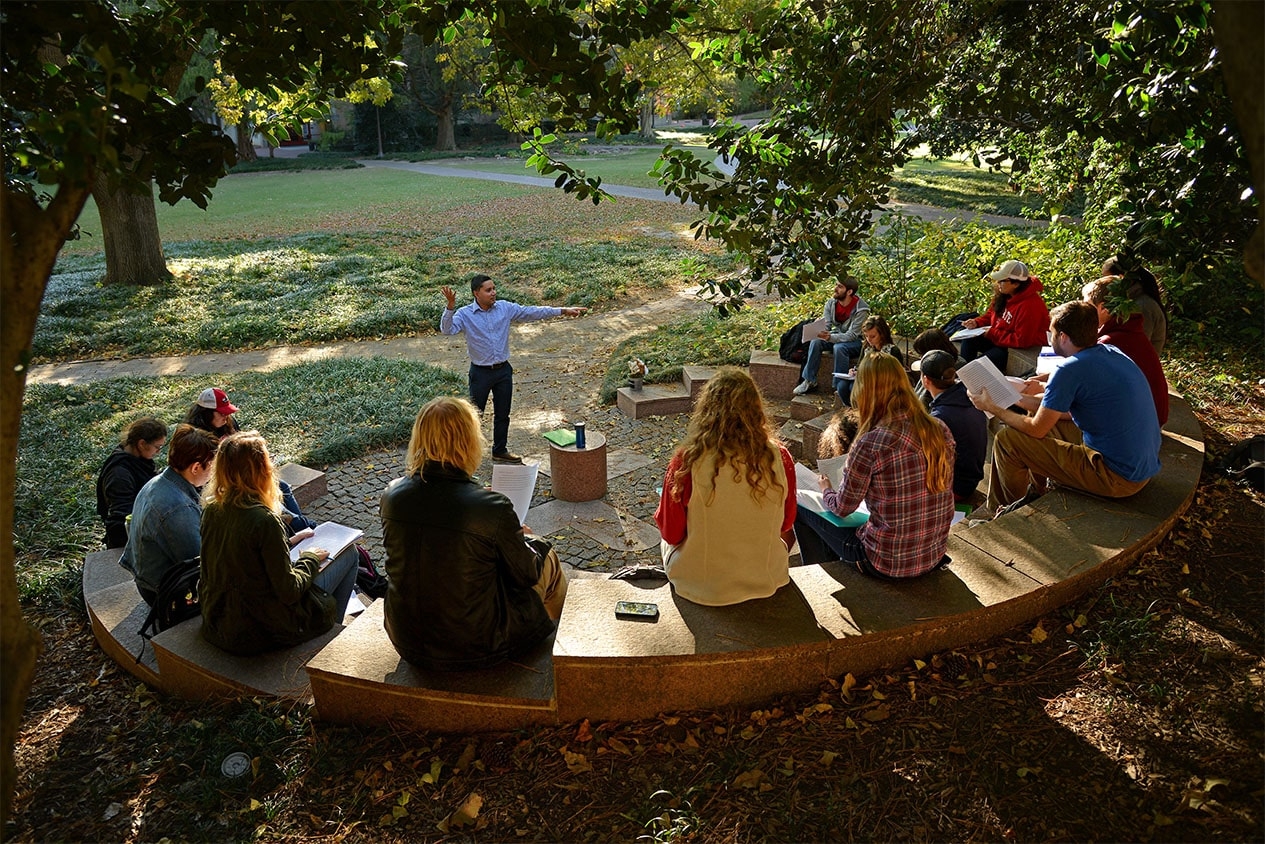Africana Studies Program Celebrates 25 Years
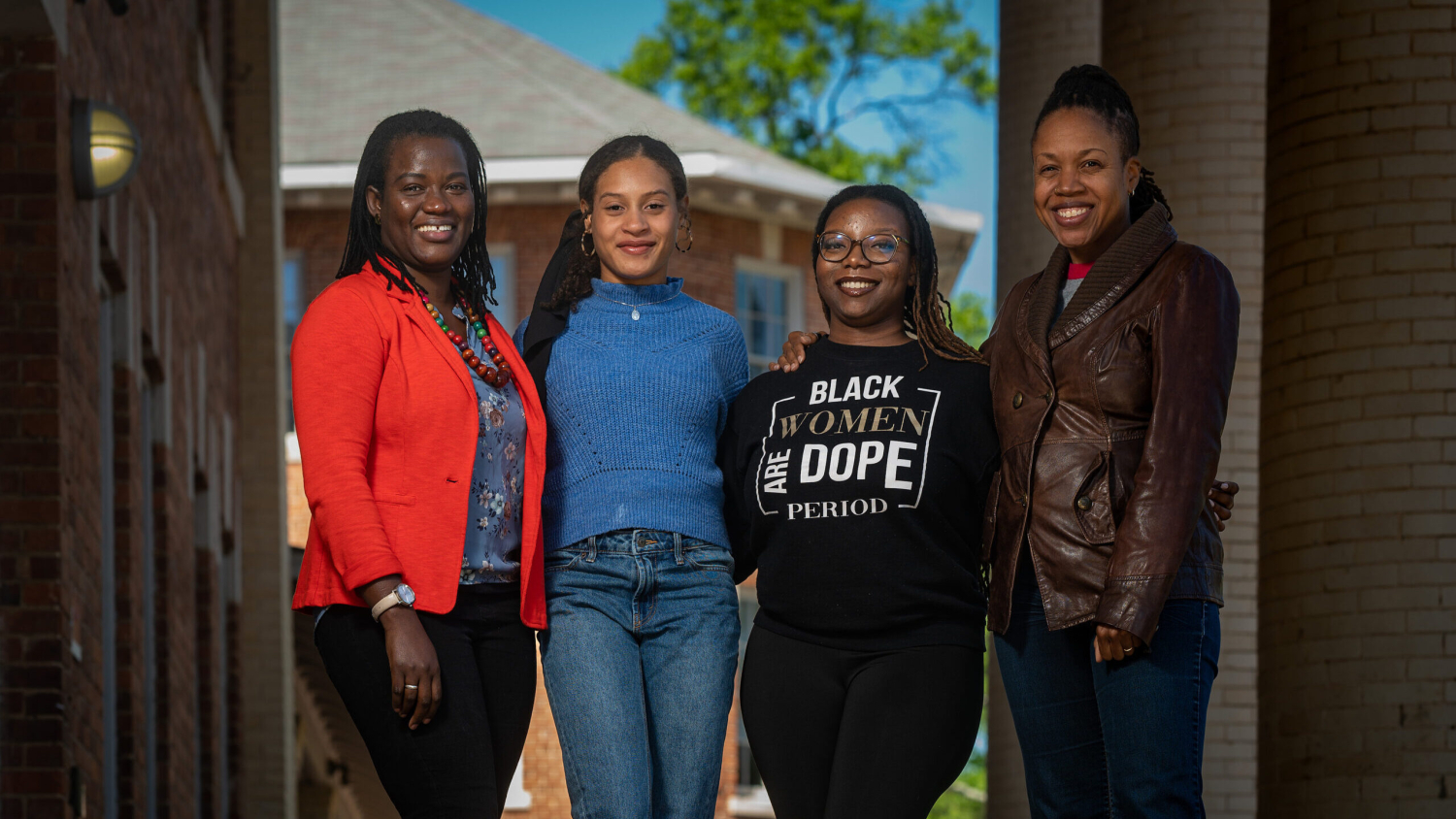
In 1997, a community of NC State students, faculty, staff and Black alumni came together to start the university’s Africana Studies program.
Demand for a curriculum led first to new courses, then the establishment of a major in 2006. Today, in its 25th academic year, the program continues to enhance our understanding of the Black experience in the Americas, Africa and beyond.
“Africana Studies has been a key contributor to the transformation of a more inclusive and diverse undergraduate curriculum — and in ways that provide an intellectually critical lens on the global experience of African people,” says Kwesi Brookins, a former NC State professor and administrator who helped found the program. “I look forward to the continued growth of the program and the educational opportunities it will continue to offer the NC State community.”
To celebrate the program’s milestone, we spoke with four faculty members and students about their experiences and the significant role Africana Studies plays in higher education.
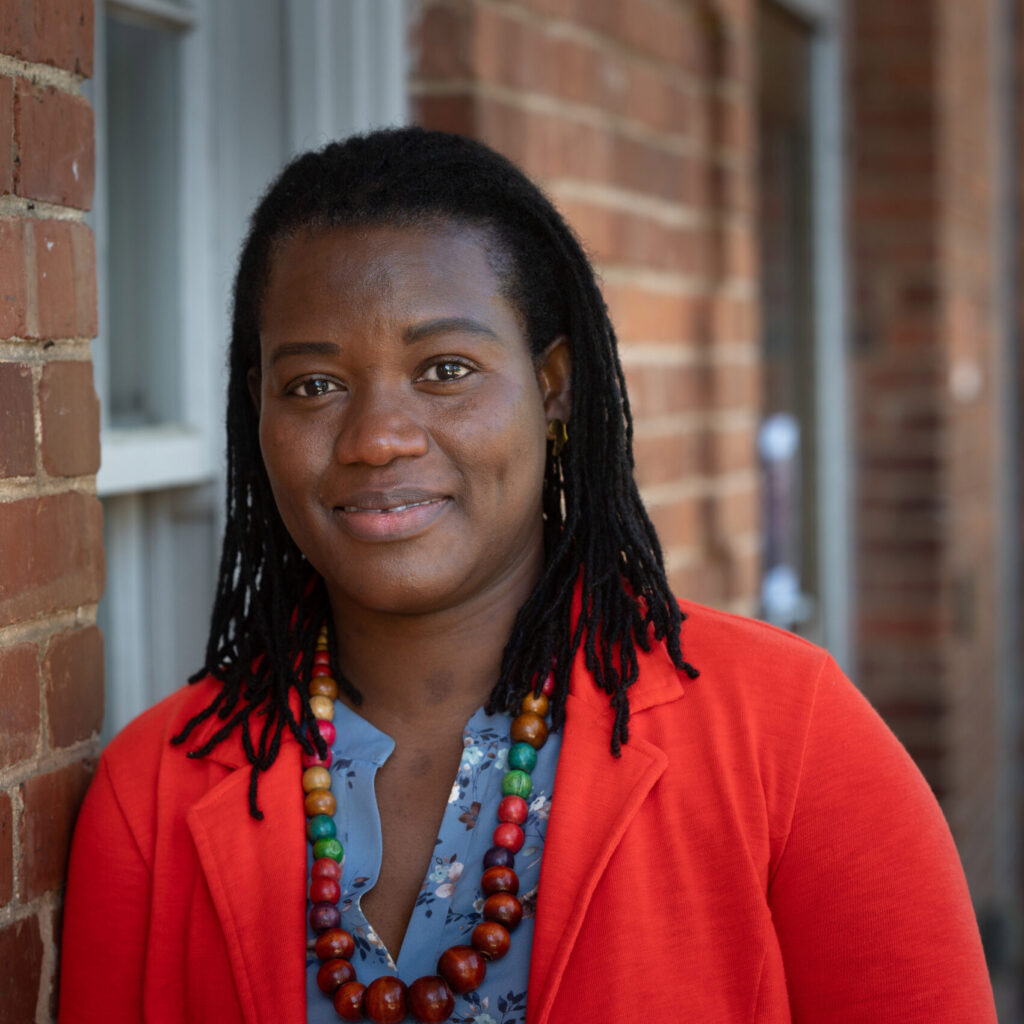
Haddy Njie
Associate Teaching Professor
Why was the Africana Studies program started?
Before that time, there was nothing specific about the experiences of Black people in terms of course offerings. It is, however, salient to note that despite the influential roles the needs and desires of African American students played in the program’s development, the Africana Studies (AFS) program holds enormous significance in our increasingly diverse and multicultural world. It also offers courses to AFS and non-AFS majors that build knowledge on the unique experiences of people of African and Africa-descent.
What are you most proud of about the program?
I am inspired by the persistence of the Africana Studies program through its 25 years of existence. I am also proud of the valuable efforts of the giant founding faculty whose foresight birthed the program and the continuous dedication and commitment of the esteemed faculty and students in furthering the program’s mission and curricula goals. I am proud that the African Studies program continues to offer intellectually-stimulating courses rooted in Black studies across several disciplinary areas such as cultural studies, religion, economics, sociology, psychology and history.
How does the program prepare graduates for their intended career paths?
Housed within Interdisciplinary Studies, Africana Studies allows students to cultivate and apply critical thinking skills in exploring, analyzing and developing solutions to issues confronting the global Black population. The undergraduate major prepares students for careers in several professional areas, such as education, government and politics, law, and communication. Africana Studies students have also used the major as a solid undergraduate degree to seek advanced degrees in numerous fields.
What is the importance of the program to NC State and beyond?
The program imbues students with knowledge that centers on the people, cultures and overall experiences of Africans and people of African descent. At NC State, the Africana Studies program adds significant curricula value by diversifying the Eurocentric university canon that centers on whiteness in understanding the human experience. Consequently, the Africana Studies program opens up spaces within our university for students to critically interpret, question and advocate for policy reforms that dismantle social hierarchies such as racism and other institutionalized practices that limit the human capabilities of African and African-descent people.
Our world needs leaders who are poised by their educational training and experiences to address the global issues of our time. Understanding the increasingly multicultural world and the diverse needs of the global human population is paramount to creating a just world. The Africana Studies major is well-situated to continuously train global leaders who would work to realize a more equitable and fairer world for everyone, regardless of race or background.
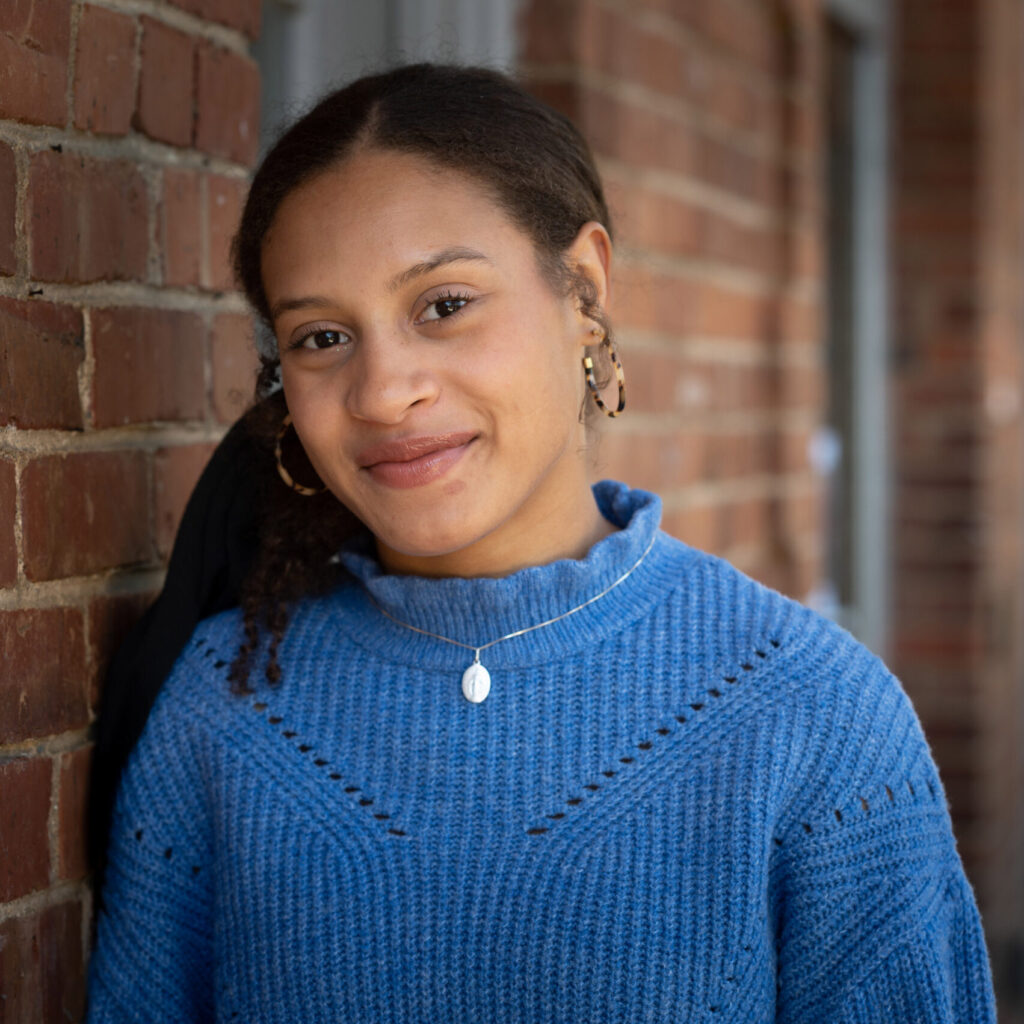
Kayla Clark
Senior, Africana Studies major
Why did you choose the Africana Studies program?
When I was a freshman in college, I was undecided and in the Exploratory Studies program. The one piece of advice my advisor gave me that I feel was most helpful was to explore courses that sounded interesting and counted for my general education credits. When I reflected on what those classes were, they were almost all related to Africana Studies, including my minor in women’s and gender studies. These were classes like Caribbean History, African American Literature, and even African American Theater. This is what made me realize my passion for that knowledge and to choose this major.
How did the program change your understanding of the Black experience in our world?
Being a part of Africana Studies and participating in the courses for this degree has transformed the way I view my own identity and the Black experience. Many people’s conceptions of other cultures are smeared with biases and invalid stereotypes. I have always known this. However, being a student in the Africana Studies program has shown me that these fallacies exist even when it comes to our views of the communities we ourselves are a part of. There is no single Black experience, and everyone has a different story or even multiple stories in relation to their identities. Black history is complex and nuanced, and understanding this caused a radical repositioning of my own perception of Blackness in our world.
How has your time in the program affected your long-term goals after college?
Considering my long-term goals, I am prioritizing my well-being and the fulfillment of my own personal dedication to combating social injustice across the diaspora. Celebrating Black joy and pushing Black stories to the forefront has been a passion that I realized on campus during my four years. I first started working at the African American Cultural Center during my freshman year, and now I serve as a senior AYA ambassador. Working in this capacity has revealed to me the significant work that goes into community building and organizing which I hope to pursue in the long term. Through the classes I have taken at NC State, I have met many professors and students who have advanced their passion for Africana Studies to the next level, furthering their research about topics they are passionate about in graduate school and beyond. This has inspired me to consider applying for a Fulbright scholarship that will allow me to trace my own roots and research the issues I am most passionate about within the diaspora. Post undergrad, I hope to use my degree in all capacities I can to continue dismantling harmful structures of power, deconstruct forced narratives not based in truth, and move towards a vision of liberation for all peoples, especially those within the African diaspora.
What is the importance of the program to NC State?
The Africana Studies program is extremely important to me because it has allowed me to learn more about who I am and how history shapes people, not only within the African diaspora but across the world. The importance of the Africana Studies program goes beyond just providing a quality degree or a good career path for students. I have been challenged to consider complex questions I have never asked before about myself, my race, people and the world. It has taught me critical thinking skills, compassion, cultural competency and awareness and has made me a better person. These are all things that NC State should strive to provide their students with, experiences that allow them to evolve into leaders and simply better people by the time they graduate.
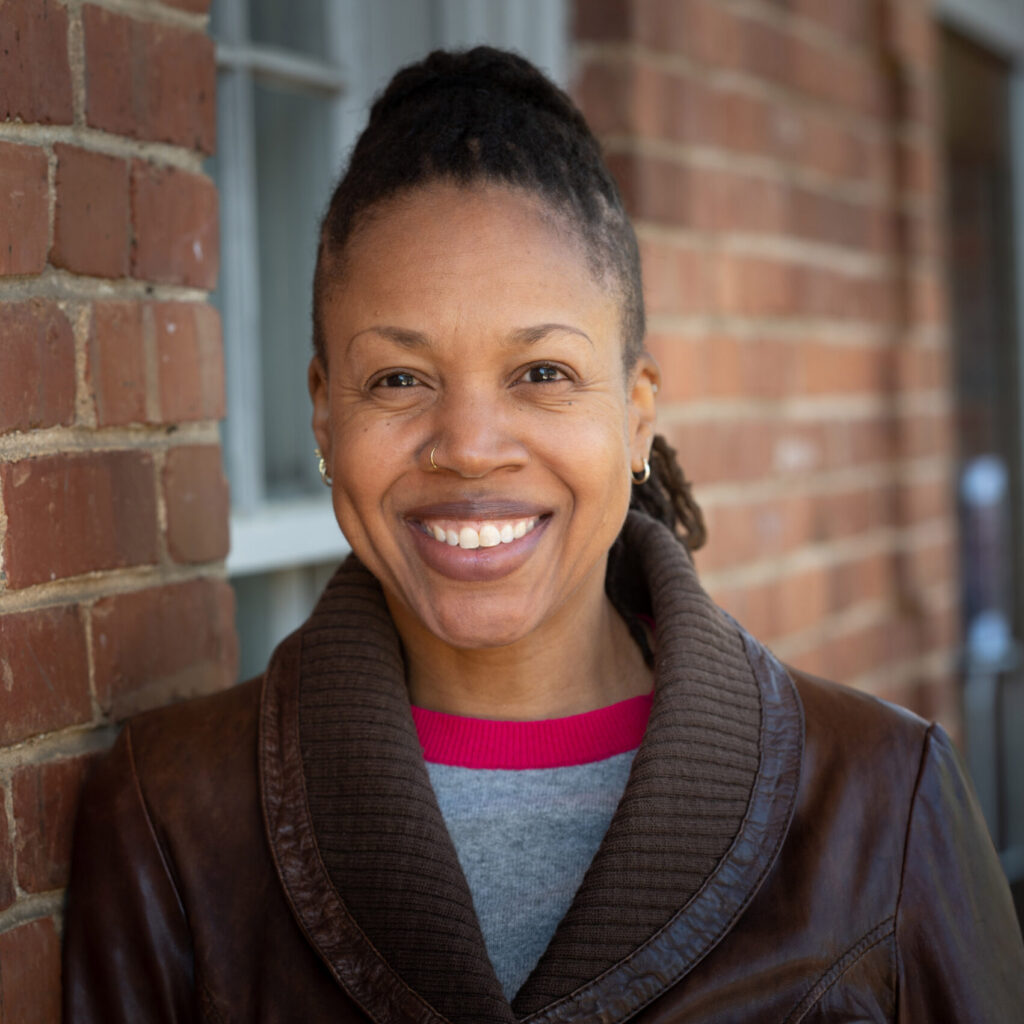
Natalie Bullock-Brown
Assistant Teaching Professor
What are you most proud of about the program?
I’m most impressed with the resilience and longevity of the program. It continues to grow and develop new courses to give not only College of Humanities and Social Sciences students, but students campuswide, the most substantive and engaging courses we can offer from a range of passionate and dedicated professors.
What is the importance of the AFS program to NC State and beyond?
Its importance can’t be qualified. Without knowledge of and a willingness to examine the ways that concepts of race, racial hierarchy, white supremacy and other related issues impact our society domestically and globally, we are absolutely and consistently doomed to repeat the horrors of the past. I submit that it’s by design that there’s a movement underway to maintain a white supremacist status quo, but also criminalize efforts to call out and dismantle that status quo. What we are seeing is a backlash, which is historical and cyclical in nature, and it’s important for students to understand the cycles.
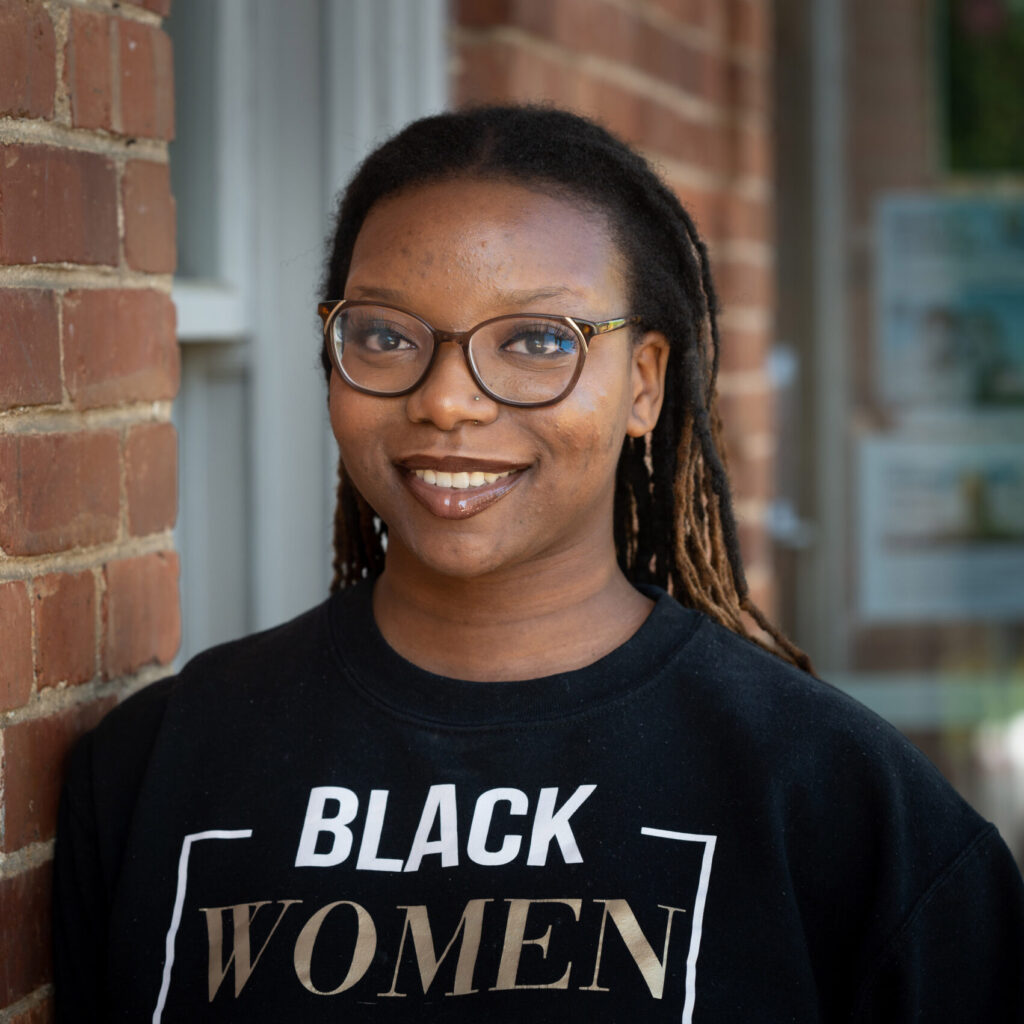
Ariana Frazier
Senior, Africana Studies major
Why did you choose the Africana Studies program?
Honestly, Africana Studies chose me before I even got to NC State. For as long as I can remember, history has always been my least favorite subject. Hearing about the distant past never interested me, and I always questioned why we were lectured about the same 10 people over and over again. As old as the world is, I’m sure we could learn about more than just the founding fathers and Columbus. Then in 3rd grade, I learned about Mansa Musa, the wealthiest man in history. Learning he was from Africa — specifically, Mali — took me by surprise because, until that point, I had only known that Africans were enslaved, brought to the Americas and forced to work. My perception of history changed drastically at that moment, and I started thinking critically about how history was told and taught.
A few years later, the Smithsonian Museum of African American History and Culture opened in Washington, and my mother took my sister and me. I will never forget the overwhelming emotion I felt walking through the floors, pausing to absorb the stories, standing before larger-than-life figures, and wanting to learn more about history. The victories, the inventions, the trials and the determination empowered me to continue seeking this perspective, my perspective. I became involved in the Black Student Union and other organizations dedicated to uplifting the Black community at my high school. My senior year of high school granted me the opportunity to take a course called Minority-Majority Studies, which explained history from the perspective of the oppressed, rather than the oppressors. I learned more about the world in that class than I had ever learned before. Naturally, the next step was to continue my educational journey in college. And I’m so glad I did.
How did the program change your understanding of the Black experience in our world?
Joining the Africana Studies program built upon the knowledge I had gained from the Minority-Majority Studies class and approached the Black experience from so many different angles. Not only was I learning historical facts, but I was learning about theories and guiding principles that influence behavior in the Black community. I had never thought of Blackness from a sociological or psychological standpoint until entering this program. Majoring in Africana Studies allowed me to put seemingly abstract experiences into words and concepts. My personal experiences as a Black woman in America were the pieces of the puzzle, and my Africana Studies courses helped me put them together and see the bigger picture. People like to joke that Black people make everything about race, but in this country, and almost every other country, everything is about race in one way or another. In a country that was founded on the principles of racial inequality, race controls nearly every aspect of how we all live whether we know it or not. Africana Studies also helped me gain a new joy and pride as a Black person. Our experiences are so complex and inspiring, despite the pain we continually endure. That we are still able to produce world-renowned art and music, shatter records and just exist to the fullest makes me want to dive deeper into my studies.
How do you hope to use this degree?
Before coming to college, I always knew that no matter what my career would be I was going to focus on uplifting the Black community. That was always my goal. These past four years in the Africana Studies program only solidified my desire to prioritize my community in my career. My Africana Studies degree introduced me to my passion for public health. From a very young age, I knew I wanted to have a career in the health field. As I got older and started hearing about racial health disparities, I knew what I was meant to do. While learning about health disparities for one of my AFS courses, the COVID-19 pandemic shook the world and brought racial health inequities to the forefront. Shortly after, I designed a public health major and incorporated several courses from my Africana Studies degree into it. Now that I’m about to graduate and move on to the next phase of my life and education, I will be using my Africana Studies degree to help reduce the Black maternal mortality rate and help more Black birthing people gain access to support before, during and after pregnancy. For as long as I am able, Africana Studies will be embedded in everything I do.
What is the importance of the program to NC State?
NC State is a predominantly white institution, or PWI, with a thriving and lively Black student population. Nevertheless, there are few places Black students feel safe and seen. For many students, it’s uncomfortable being the only Black student in class or having to feel like we have to speak on behalf of the entire Black community. The Africana Studies program tends to form a small community within itself as Black students from all colleges on campus take AFS courses as electives. There are plenty of people I have met that I never would have crossed paths with if not for AFS. Some amazing professors and instructors teach AFS courses; some of my favorites do. Most importantly, offering the Africana Studies program here is NC State’s way of saying that Black history and culture matter. There is still lots of work to do to promote and expand this program for future generations of the Wolfpack, but I found a home in AFS and I hope more students are able to do the same. Happy 25th Anniversary, Africana Studies! I’m honored to celebrate this momentous occasion.
This post was originally published in College of Humanities and Social Sciences.

